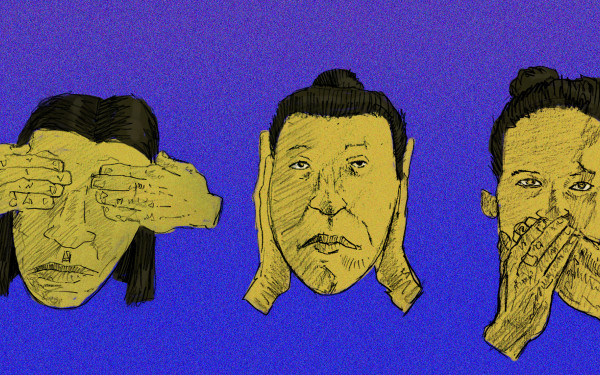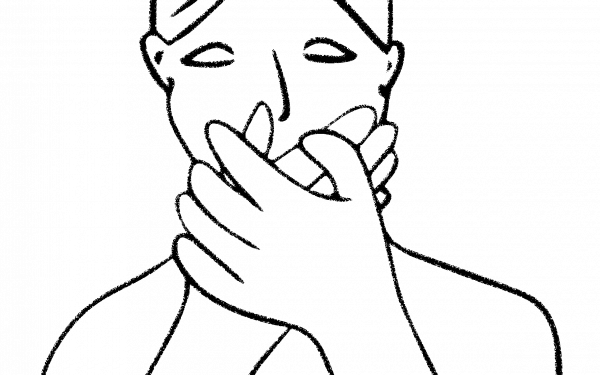Pigeons, an emerging way to cope with stress and anxiety
A student finds comfort in interacting with our downtown feathered friends
Every morning, Arindam Mor approaches the benches in front of Concordia’s Guy-De Maisonneuve (GM) Building, where a flock of pigeons immediately crowds around him. Then, like clockwork, Mor rolls up his sleeves and slowly extends his arms with a warm chocolate chip muffin in either hand for the pigeons to feast on.
Every morning, Arindam Mor approaches the benches in front of Concordia’s Guy-De Maisonneuve (GM) Building, where a flock of pigeons immediately crowds around him. Then, like clockwork, Mor rolls up his sleeves and slowly extends his arms with a warm chocolate chip muffin in either hand for the pigeons to feast on.
“When [the pigeons] sit on my palm, I know for a fact that it’s something special. It’s something different that gives me a sense of validation,” Mor said.
Mor is a Concordia University master’s student who moved to Montreal from India in December 2022. He said spending time with pigeons brings him comfort and helps him cope with the isolation he sometimes feels as an international student.
Often going on road trips as a child to his grandfather's farm in India, stress coping around animals is not new for Mor.
“Things have been shitty ever since the pandemic,” he said. “But I guess [the pigeons] give me that dopamine hit. And what’s the alternative, you scroll through Instagram reels?”
Mor is one of many turning to birds for emotional support. The practice became a trend on TikTok during the COVID-19 pandemic. Known as avian therapy, it uses birds to help humans cope with stress, anxiety and socialization.
According to a study published in Scientific Reports, on average, participants reported higher mental well-being during assessments when they had encountered birdlife.
Additionally, according to research from Human-Animal Interactions, birds have been found to not only help lower depression levels and improve quality of life in older people, but also improve social interactions among those with various psychiatric disorders.
Mor’s friend and fellow student, Sanket Patil Ingle, also enjoys sitting with the pigeons, though for different reasons.
Though Ingle said that interacting with the pigeons doesn’t reduce his stress levels, it does help boost his mood.
“When you're around them, it gives you the chance to divert your mind and seeing them happy around there,” Ingle said.
The same Human-Animal Interactions research has also highlighted the benefits of bird presence in community spaces, and how avian therapy can add to the growing potential of pet therapy, which primarily involves dogs.
“It’s really the releasing of endorphins that’s going to help you, no matter if you’re in company with people, with birds or other species,” said creative art therapist Alison Aylward. “It all comes down to what the person needs to feel present, grounded and engaged in the moment.”
Additionally, she added that animals can motivate people to get outdoors, which also has mental health benefits such as decreasing anxiety and boosting confidence.
According to an article published by Yale School of the Environment, people who spend just two hours outside per week were “substantially more likely to report good health and psychological well-being than those who don’t.”
However, Aylward said it’s not only being outside that contributes to better mental health, but also the interaction with other species that could make a “world of difference” in one’s mental health.
She added that research has shown that the higher the bird density in urban areas, the lower the prevalence of depression and anxiety in the inhabitants.
“You're just opening up your world, and just the feeling of the air on your skin, in terms of mindfulness and engaging with nature, is great,” Aylward said. “While most of us are doom-scrolling, [bird watchers] are improving their cognitive functions by being outside.”
While pigeons may not be the first animals that come to mind when people think of emotional support, for Mor, they’ve become a vital part of his life since moving to Canada.
“It’s human nature to feel validated, to be appreciated, to feel loved, and I don’t get that from humans a lot,” Mor said. “But the pigeons give me a sense of validation, love and a sense of belongingness in this world.”




_600_375_90_s_c1.jpg)
_600_375_90_s_c1.jpg)

